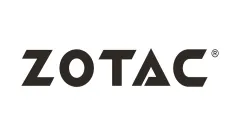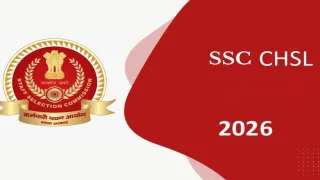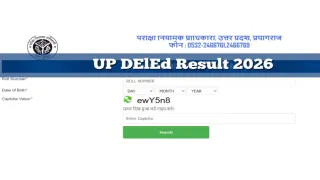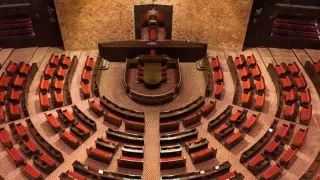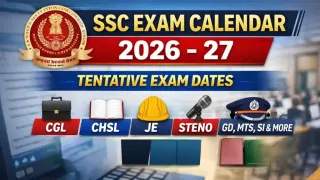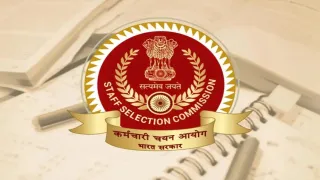Canada, once regarded as the most welcoming destination for Indian students, is witnessing a major shift. In August 2025, nearly 75% of study permit applications from India were rejected — a record high that has sparked widespread concern among aspiring students, educational consultants, and policymakers. The sudden surge in rejection rates marks a dramatic change from just two years ago when Canada was considered a haven for international learners seeking quality education and post-study opportunities.
According to government data, the number of Indian students applying for study permits has also witnessed a massive decline — from 20,900 in August 2023 to just 4,515 in August 2025. The fall reflects growing uncertainty and frustration among Indian students, many of whom have begun to explore alternative destinations such as the UK, Australia, and Germany. Canada’s recent measures to tighten immigration controls and combat fraudulent applications have hit Indian applicants the hardest, changing the dynamics of international education trends.
Officials say these measures were part of Ottawa’s strategy to curb temporary migration and restore integrity in its student visa system. But for many, this move is being perceived as excessively restrictive and damaging to Canada’s reputation as an inclusive education hub. Educational institutions in Canada, which have long relied on Indian students for cultural diversity and economic contribution, are now feeling the pinch as the inflow of new students drops significantly.
Massive surge in rejection rates
In August 2025, Canada rejected approximately 74% of all Indian student visa applications for post-secondary institutions, according to Reuters, citing official government data. The figure is an alarming increase from the 32% rejection rate recorded in August 2023. By comparison, about 40% of overall study permit applications were denied across all countries, and only around 24% of Chinese study permits faced rejection during the same period.
This steep rise in visa denials has raised concerns about fairness, transparency, and the broader implications for India-Canada educational relations. Experts say that the growing rejection rates have created panic among applicants, especially those who had already secured university offers and paid partial tuition fees. Many families have now become hesitant to invest in the expensive and uncertain process of applying to Canadian institutions.
While Canada remains home to more than 300,000 Indian students already enrolled, the pipeline of new entrants appears to be drying up. Consultants believe that the long-term impact could be a decline in Canada’s international education revenue and a potential talent gap in sectors like technology, engineering, and business management that traditionally attract Indian graduates.
Reasons behind the rejections
Canadian immigration authorities have attributed the spike in rejection rates to multiple factors, primarily revolving around fraud detection and enhanced verification systems. The Immigration, Refugees and Citizenship Canada (IRCC) department reported that in 2023, nearly 1,550 study permit applications were found to contain fraudulent or fake letters of acceptance. Many of these were traced back to unverified agents or consultancies operating in India.
Following the discovery, the Canadian government introduced a new digital verification system in 2024 designed to cross-check acceptance letters directly with educational institutions. As a result, more than 14,000 suspicious or fraudulent documents were flagged in 2024 alone. This strict vetting process, though necessary to maintain system integrity, has unintentionally affected genuine applicants as well.
Officials have also implemented new financial requirements for international students to ensure that they can sustain themselves during their stay. The financial proof threshold has been raised significantly, making it more challenging for students from middle-income families to qualify. Combined with heightened background checks, these measures have collectively reduced the approval rate of Indian applicants.
Impact on Indian students and families
The sudden rise in rejections has left thousands of Indian students in limbo. Many had secured admissions in reputable Canadian universities, paid tuition deposits, and were preparing to travel when they received denial notices. These students now face academic uncertainty and financial stress as visa reapplication processes can take months, with no guarantee of approval.
Educational consultants in India have reported a sharp decline in student inquiries for Canada, noting that most applicants are now shifting their focus toward destinations like the UK, Ireland, and Australia, where acceptance rates remain relatively stable. The perception that Canada has become “too strict” has started to affect the global image of its education system.
Parents, who often invest their life savings into their children’s overseas education, have expressed disappointment. For many families, Canada represented not just education but a pathway to long-term settlement, given its previous policies favoring international graduates for permanent residency. The new environment has made that dream far more uncertain.
Diplomatic backdrop and political tensions
This issue has also emerged amid ongoing diplomatic strains between New Delhi and Ottawa. Over the past year, both nations have experienced tense relations following political disagreements and controversies during the administration of former Prime Minister Justin Trudeau. As both governments attempt to repair ties, the student visa controversy has further complicated matters.
The Indian embassy in Ottawa acknowledged the growing rejection rates but emphasized that Canada has full discretion in issuing study permits. In a statement, it said, “However, we would like to emphasize that some of the best quality students available in the world are from India, and Canadian institutions have greatly benefited from their talent and academic excellence.”
Observers believe that rebuilding trust between the two nations will be key to reversing the declining trend. Some analysts have even suggested that future education partnerships or bilateral agreements could help restore smoother visa processing and student exchanges.
Canada’s policy shift: curbing temporary migration
Canada has been gradually tightening its immigration and student entry policies since early 2024. The government announced a two-year cap on international student admissions to address housing shortages, rising living costs, and concerns over fraudulent applications. As a result, the number of new study permits issued to international students was reduced for the second consecutive year in 2025.
Authorities say the move aims to “restore balance” to the immigration system and ensure that those who enter Canada for studies are genuine students rather than individuals exploiting the system for work or residency purposes. However, universities and business groups have expressed concern that this policy could backfire by reducing the skilled talent pool that supports Canada’s growing industries.
Canadian Foreign Affairs Minister Anita Anand recently stated that the government remains committed to welcoming Indian students but must also safeguard the integrity of its immigration framework. “We value Indian students and their contribution to Canada’s education and economy, but our responsibility is to protect the system from misuse,” she said during a visit to New Delhi in October.
What’s next for Indian aspirants?
Experts advise Indian students planning to apply to Canada to exercise greater caution and ensure that all their documents, especially letters of acceptance, are verified directly with the university. Applicants should also maintain transparency in financial documentation and avoid unauthorized agents or third-party consultants who promise “guaranteed visas.”
- Verify admission offers directly with the designated learning institution (DLI).
- Prepare stronger financial proof as per new IRCC guidelines.
- Avoid agencies offering falsified documents or unverifiable letters.
- Stay updated with official announcements from the Canadian embassy.
- Consider alternative study destinations in case of delays or rejections.
Despite the challenges, Canada remains an attractive study destination due to its quality education and global exposure. Many hope that once the verification systems stabilize and diplomatic ties improve, rejection rates will normalize again. For now, however, Indian students are approaching Canada with far more caution than before.
Conclusion: balancing integrity and opportunity
The high rejection rate of Indian student visas is a reflection of Canada’s evolving immigration landscape — one that is prioritizing integrity over expansion. While the measures may seem harsh, officials argue that these are necessary to preserve the credibility of the student visa program. Still, the impact on genuine students cannot be ignored.
For India, the development serves as a wake-up call for regulating foreign education consultancies and ensuring better transparency in student documentation. For Canada, the challenge lies in restoring trust and demonstrating that it continues to value Indian students not just as applicants but as future contributors to its society and economy. The coming months will reveal whether both nations can strike the right balance between protecting the system and keeping opportunities open for the deserving.
Also Read: Coimbatore PG Student Abducted, 3 Arrested After Encounter











